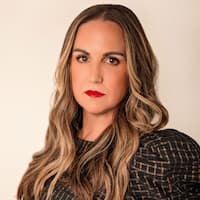State Farm is the largest car insurance company in the U.S., followed by Progressive and Geico. The top three private auto insurers – State Farm, Geico and Progressive – account for 45% of the overall market share, according to the NAIC’s 2023 Property and Casualty Market Share Report.
Allstate, USAA, Liberty Mutual, Farmers, American Family, Travelers and Nationwide round out the top 10 largest insurers in the U.S. Keep reading to learn how market share differs among the top auto insurers.
- The benefits of buying coverage from a large insurance company generally include lower rates and more robust coverage options.
- The disadvantage of buying coverage from a large company is that you may get less satisfactory customer service.
- State Farm, Progressive, Geico, Allstate and USAA top the list of the 10 largest auto insurance companies for direct premiums written.
10 largest auto insurance companies in the U.S.
The table below highlights the 2023 market share of the largest auto insurance companies in the U.S., according to the National Association of Insurance Commissioners, or NAIC.
| Rank | Company | 2023 Market Share (%) |
|---|---|---|
| 1 | State Farm | 18.2% |
| 2 | Progressive | 15.2% |
| 3 | Geico | 12.2% |
| 4 | Allstate | 10.3% |
| 5 | USAA | 6.2% |
| 6 | Liberty Mutual | 4.2% |
| 7 | Farmers | 4.2% |
| 8 | American Family | 2.1% |
| 9 | Travelers | 2.1% |
| 10 | Nationwide | 1.7% |
Explore our comprehensive guide on insurance company ratings
A quick snapshot of the top 10 car insurers
Allstate
Allstate makes it easy to get an instant rate quote and file a claim online, without ever calling an agent. The company also offers a highly-rated mobile app for iOS and Android devices, where you can submit claims, pay your bill, download your ID cards, request roadside assistance and access the Drivewise safe driver rewards program.
American Family
More than 50% of American Family customers say they would recommend the company. It’s one of the best car insurance companies for discounts, with various savings for teen drivers, young volunteers, generational policyholders, driving under a certain number of miles per year, switching from a competitor company and more.
Farmers
In addition to its low rates, Farmers stands out for its impressive lineup of endorsement policies. You can increase your protection with spare parts coverage, a glass deductible buyback, accident forgiveness, guaranteed value coverage, and others. You can also report a car insurance claim online or through the Farmers mobile app.
Geico
Geico has bare-bones car insurance coverage, but it offers some of the best auto insurance discounts in the industry. You’ll find savings for federal employees, military personnel, emergency deployment, affinity groups and more. Geico also stands out for its low premiums, even if you have a poor credit score or bad driving record.
Liberty Mutual
Liberty Mutual’s average premiums are more expensive than most competitors, but it offers some of the best auto insurance endorsements. With Liberty Mutual, you can customize your policy by purchasing new or better car replacement, gap insurance, OEM coverage and roadside assistance. Liberty Mutual also offers special coverage for teachers.
Nationwide
Nationwide gets decent scores for average price, customer service and claims handling. However, it has great discounts if you are looking for a low premium. Nationwide offers savings for good students, safe drivers, taking a defensive driving course and several others. If you drive infrequently, you might consider Nationwide’s SmartMiles pay-per-mile insurance policy.
Progressive
Progressive is a great insurance provider if you’re looking for cheap rates and generous discounts. However, the company also offers some of the best online tools and resources. You can use the Name Your Price Tool to build a policy that fits your budget and use the rate comparison tool to see how Progressive’s prices stack up against competitors.
State Farm
State Farm is the biggest car insurance company in the country and it’s rated the best overall. State Farm is known for offering affordable rates and great customer service, plus policyholders are generally satisfied with the company’s claim handling. We also like that State Farm offers a variety of discounts, including savings for teen drivers.
Travelers
Travelers has excellent financial strength with an A++ rating from AM Best and affordable rates. The company stands out for its add-on policies, like rideshare coverage and accident forgiveness, as well as an efficient claims-handling process. You can start a new claim online, track the status of existing claims and even find a repair shop in your area.
USAA
USAA Insurance Group is one of the top-rated insurance companies on the market, with an A++ rating from AM Best and the highest overall customer satisfaction score from J.D. Power in every region. USAA Insurance Group only sells car insurance to military personnel, but if you’re eligible, you can take advantage of the company’s low rates, excellent customer service and reliable coverage.
Benefits of large vs. small insurance companies
Although most car insurance policies are sold by the largest car insurance companies, there are benefits to working with a smaller insurer. See the benefits of each below.
Pros of larger auto insurance companies
In general, car insurance policies that major insurance companies underwrite tend to be less expensive. Because large insurers write millions of policies each year, they can afford to price their policies more competitively.
“The best benefit of larger insurance companies is that they often have a larger pool of money to offset risk, which means they should be able to maintain more stable premiums,” says Shane Page, president of Piedmont Insurance Associates in North Carolina. “If a small company sustains catastrophic losses from a storm in a given state, it will impact their future rates much more drastically than the large companies who sustain the same losses.”
Additionally, the biggest insurance companies in the U.S. often have more coverage options. A large provider will likely have those policies if you want to customize your policy with endorsements or need specialty coverage like rideshare insurance.
Pros of smaller car insurance companies
On the other hand, smaller local insurance providers usually have better customer service than large providers.
“Small companies are often much more personal and locally engaged, as you would expect,” Page says. “Plus, there is usually more latitude for underwriting decisions, and being a loyal customer can pay off.”
So, choose a local insurance company if you prefer to work with an agent in person and value a customized experience. But if your main concern is price, or if you need a specific type of coverage, a large provider may be more suitable.
Learn more about how to choose the best car insurance companies from Consumer Reports.
Frequently asked questions: Largest auto insurance companies
What are casualty insurance companies or casualty insurance groups?
Insurance companies are often called “property and casualty insurance” companies or groups. This term describes, in general, what types of insurance are involved and what they cover. The property component relates to things you own that are covered by insurance, such as your car.
Casualty insurance covers you if you damage other people’s property or are at fault for their injuries and they file a claim against you.
What does “insurance premium” mean?
“Insurance premium” is what the insurance industry refers to for what you pay to a company for a policy. However, people generally use the words “rate” interchangeably with “premium,” though they technically mean two different things.
A premium is what you pay to a company for coverage. Insurance rates are the numbers insurance companies file with regulators to determine policy pricing. When an insurance company files rates with state commissioners, they are reviewed. After they are approved by regulators, the company uses the rates to determine how much drivers pay for coverage.
What does “direct premiums written” mean?
“Direct premiums written” represents the premiums, or what policyholders will pay, for all policies that an insurance company and its affiliate companies have written or issued during the year. When researching which casualty insurance companies have the most market share, you will often see it measured by the number of direct premiums written during a specific time.
What does “net premiums written” mean?
You may see this term when researching which companies are the largest. “Net premiums written” is the total amount of premiums a company has written, minus costs for commissions and policies it has subcontracted to other companies.
Resources & Methodology
Sources
- Insurance Information Institute’s “2021 Insurance Fact Book.” Accessed September 2024.
- NAIC. “2023 Property and Casualty Market Share Report.” Accessed September 2024.
– Elizabeth Rivelli contributed to this story.





